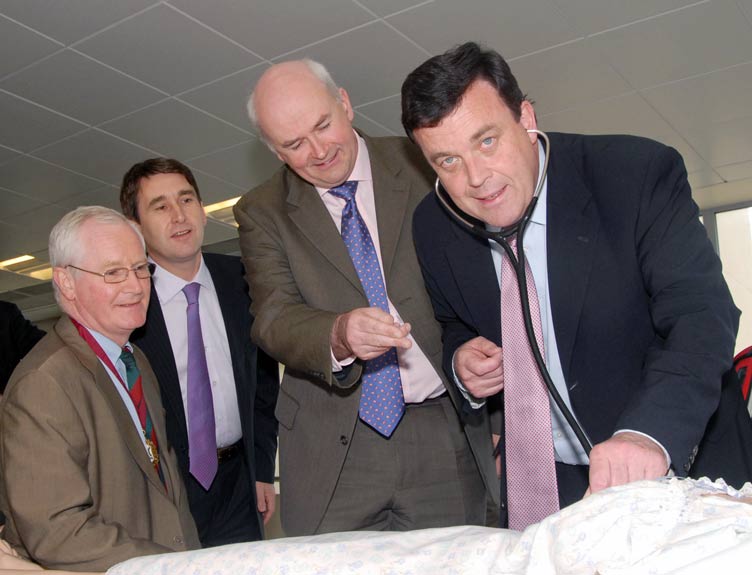RCSI launches Graduate Entry Programme in Medicine at Connolly Hospital

The Minister for Children Brian Lenihan today officially launched RCSI’s Graduate Entry Programme (GEP) in Medicine at Connolly Hospital, Blanchardstown.
The Higher Education Authority (HEA) approved the intake of 40 students into the RCSI Graduate Entry Programme last month, based on the recommendations of an international group of experts in medical education. University of Limerick was also awarded a number of places.
As one of its major teaching hospitals, Connolly Hospital will receive significant funding from RCSI over the next few years for its student teaching and learning facilities. The investment in Connolly hospital will include the development of state of the art teaching facilities including small group teaching rooms and a clinical skills laboratory. Four senior academic and clinical appointments will also be made along with appropriate administrative support staff.
RCSI’s Graduate Entry Programme is the first programme to be accredited by the Medical Council of Ireland. It was developed to meet the demands of producing increased numbers of doctors for the Irish healthcare system.
The programme will commence in September 2007 with an initial intake of 30 students, increasing to 40 in the next couple of years and will be delivered with an emphasis on traditional lecture-based teaching and small group self-directed learning opportunities which are assisted by the RCSI Virtual Learning Environment.
Brian Lenihan, Minister for Children, said: “I am delighted by RCSI’s announcement to further invest in Connolly Hospital. By investing in state of the art teaching facilities and by the appointment of clinical and academic staff, we are further enhancing the excellence in the delivery of healthcare at Connolly hospital. Such an investment will better service the healthcare needs of the local communities.”
Cathal Kelly, Dean of the RCSI Faculty of Medicine and Health Sciences, said: “RCSI aims to develop doctors who have been educated and trained to be caring, knowledgeable and skilful and who are committed to life-long learning. This can only be made possible through our continuing commitment to quality improvement, innovation and reinvestment in our medical programmes. The graduate entry programme is yet another innovative way of addressing the shortfall in doctors as outlined in the Fottrell Report.”



